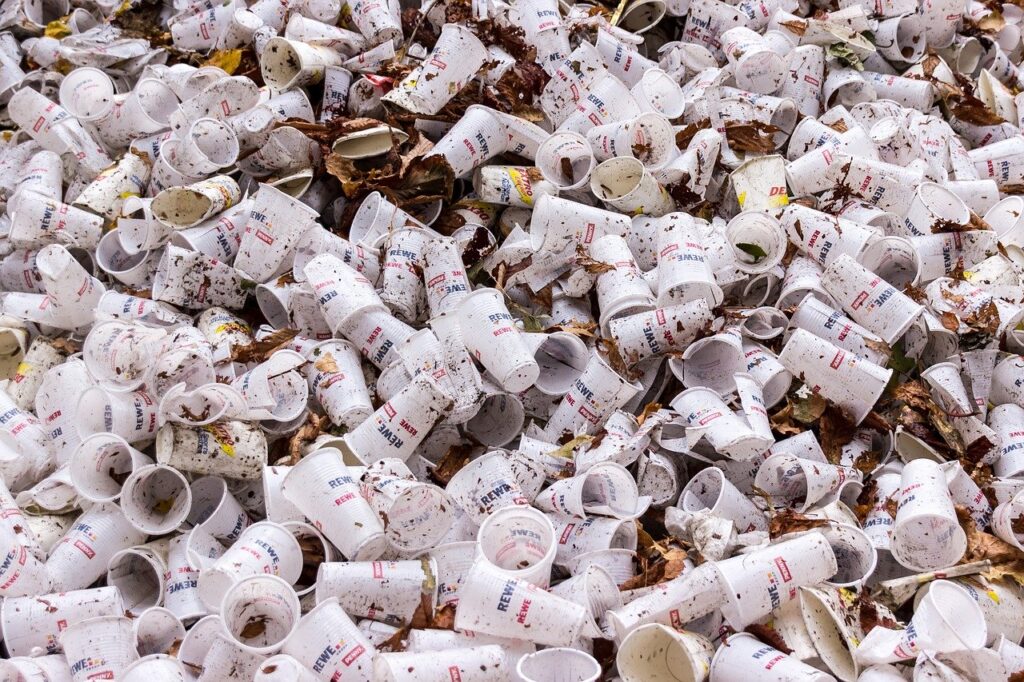
Ground Control to Farmer Tom

In a recent tweet that went viral, Farmer Tom urged MacDonald’s to start printing car registration plate numbers on takeaway packaging to deter people from littering. This is not the first time the idea has been suggested. In 2018 Canterbury Conservative Councillor Joe Howes also called for this “cheap and simple action” to catch litterbugs. Further back in 2015 the Warrington Guardian printed a similar article whereby Councillor Bowden insisted the community must unite to tackle littering and fly-tipping and fast food chains printing car registration numbers on packaging can contribute to such an effort.
The technology is available, and as soon as @McDonaldsUK start printing car registration numbers on takeaway packaging, this constant tide of littering will stop. Come on guys – what a Christmas gift to the countryside (and taxpayer) that would be! pic.twitter.com/66NSohL6DY
— Farmer Tom 🧢 🇺🇦 (@Farmer_Tom_UK) November 21, 2019
One question raised by this could be whether the privacy of an individual is compromised by having their licence plate number printed on the packaging.
Purpose Limitation
Firstly, the General Data Protection Regulation (GDPR) Article 5(1)(b) states that:
- Data must be collected for specified, explicit and legitimate purposes only (purpose specification); and
- Data must not be further processed in a way that is incompatible with those purposes (compatible use).
A licence plate number can only be used for the specific purposes for which it was created. For example, a licence plate number, registered with a specific driver, can be used for identifying those drivers who are breaking the rules of the law i.e. driving dangerously. They can be used in aiding with car accidents and to regulating and identifying unregistered and undocumented vehicles. Registration plate numbers cannot be used, however, for any old purposes which have not been assigned for their purpose. To use the registration number to identify a litterbug is not compatible with its original purpose. The specific and determined purposes of processing data MUST be clear from the start. It is only possible to use data for a new purpose if this purpose is compatible with the original purpose, you have explicit consent, or you have a clear obligation/ function set out in the law. Also, there is the question of whether a fast food restaurant would have a lawful purpose and legal basis to capture and process licence plate numbers in the first place.
Deterring and catching litterbugs is not compatible with the originally defined purposes for which the use of a licence plate number was set. You do not have consent from all drivers for the use of their data to be used in such a way and it is not, as yet, a clearly defined function of the law to start a ‘war on litterbugs’.
Proportionality
Furthermore, the principle of proportionality states that there must be a balance between the means used and the intended effect. For example, when assessing the use and processing of personal data proportionality requires that only that personal data which is adequate and relevant for the purposes of the processing is collected and processed. To use licence plate numbers to catch litterbugs is to abuse the intended purpose of licence plate numbers and quite frankly is an abuse of power.
Therefore, the use of licence plate numbers printed on takeaway food bags to deter littering is excessive and incompatible with the original purpose of a licence plate number.
“Sometimes the issue isn’t privacy, it’s just a dumb idea” [O’Brien 2019].
Last but not least, further questions of practicality cannot be overlooked. For example, if someone is committed on throwing away their fast food packaging there is nothing to stop them from throwing away the burger box, chip wrapping etc. and just keeping the registration-number-printed-bag. Or, should we print registration numbers on all parts of the fast food wrapping- just to be sure! Or on every chip?! Also, what if my passenger decides to get takeout and when I drop them off, they drop their packaging in the street- am I to be penalised on their behalf?
Printing car registration numbers on fast-food packaging to deter littering is neither GDPR compliant nor practically speaking going to target the right people. Therefore, one might quote Monty Python on this for “on second thought, let’s not go to Camelot. ‘Tis but a silly place.”


